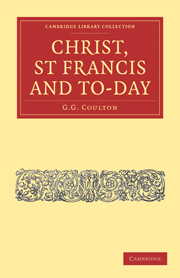Summary
THE lectures were followed by an hour of discussion. I am grateful to the critics whose objections have compelled me to clarify my meaning in text or notes, and to add an appendix dealing with two fundamental points.
But, on the whole, the discussion strengthened my conviction that, side by side with many differences which may be inevitable, there are many others which ought no longer to divide the followers of Christ. Nothing was brought forward which radically affected the following fundamental propositions.
(1) Many things now taught as essential by the clergy are primarily questions of historical fact, and therefore pertain less to the theologian's province than to that of the historian.
(2) Under closer examination, these so-called historical essentials are found to lack much of the double character claimed for them. From the historical point of view, specialists are increasingly unwilling to dogmatize, and there is probably no historian of eminence who would now defend that cruder theory of apostolical succession which was popular a generation ago, and is still frequently propounded by theologians. Conservative writers commonly content themselves now with the far simpler task of combating liberal exaggerations. Again, as to essentials, we find that great saints have taught a doctiine of miracles which permits immense latitude of belief.
(3) There are, admittedly, very serious gaps in our historical evidence of the earliest Christian origins; and these can only be filled by inference or by imagination.
- Type
- Chapter
- Information
- Christ, St Francis and To-day , pp. 156 - 161Publisher: Cambridge University PressPrint publication year: 2010First published in: 1919



